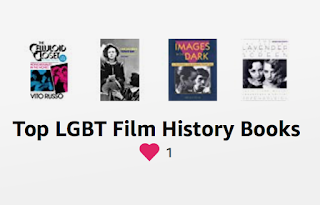Tennessee Williams and "the exigencies of desperation"

Something Cloudy, Something Clear
by Tennessee Williams (New Directions, $19.95)
Reviewed by Jenni Olson
I've been waiting for this Tennessee Williams play ever since my (pre-coming out) sophomore year in college when my (obviously gay) Humanities professor wanted to publish my mid-quarter analysis of the gay content in A Streetcar Named Desire. Of course the paper wasn't really that great—it was a desperate grasp at a few gay straws. But hasn't that always been one of our favorite occupations: searching for gay meaning, subtext, hints, or codes in the works of all those old queer artists? This gay cultural agenda has been long disdained by our heterosexual colleagues—dismissed as irrelevant, prurient, and unnecessary. But in 1981 those same straight pundits were apparently floored by Something Cloudy, Something Clear, a Williams work so bursting with overt gay content (boy-watching, butt-fucking, and joy rags) they just did not know what to with it.
Something Cloudy, Something Clear was first produced at the Jean Cocteau Repertory in New York City in August, 1981. This beautiful hardcover edition of the play, just published by New Directions, features a thoughtful introduction by Eve Adamson, director of the Cocteau Repertory, who was also Williams' friend. Panned by the critics, this late work (written three years before the author's death in 1983) has languished in obscurity until now.
In this bittersweet, and clearly autobiographical, reflection on his first love affair (and his early career as a writer), Williams shifts easily and continually between his younger and older selves (the play is set in 1940 and 1980). Something Cloudy is a startling portrait of the artist as a pathetic, horny, self-loathing, alcoholic homosexual — as both a young and an old man. Mixing thinly-disguised fictional characters with figures from his own life (longtime companion Frank Merlo, childhood sweetheart Hazel, actress Tallulah Bankhead, and Kip Kiernan, his first lover) Williams renders a sad vision (at the same time a tender apologia) of himself and his relationships.
This human tragedy of mutual exploitation revolves around a dramatically crippled trio on a windy Provincetown beach — August, a young homosexual playwright; Clare, a terminally-ill chippy; and Kip, the innocent, doomed dancer they both adore.
While Clare struggles with her homophobic, gangster pimp, August fights off last night's foul-mouthed, drunken trick. At the center stands Kip, whom August lovingly describes as, "Doomed! How goddamn stupid it is to look at them with envy, the perfect ones, the ones that appear to be completely, completely flawless, the—perfect—with eyes like startled flowers…"
August, phenomenally pathetic at thirty, pursues the perfect Kip, pausing to reflect, "was I that terrifying forty years ago."
After a rough start with a lot of irritating interrupted dialogue ("Perhaps he—" "You said you—" ) Williams give us some great moments of dry humor ("Go swim, go drown, I hope a shark eats you!") and wonderfully classic Tennessee dialogue ("Don't be too lonely tonight, spend it with somebody lovely. Goodbye. I mean au revoir. We'll make it together — we have to!") It's not necessarily up there with Streetcar or Glass Menagerie, but I guess hearing August pick up a sailor (SEAMAN: "Tonight I'm too drunk to fuck you, kid." AUGUST: "I wouldn't dream of disputing the matter with you, Spud." SEAMAN: "So you can fuck me for another fin and a drink.") is some consolation for the preceding lineage of closet cases, pederasts, and subtle innuendos (Cat On a Hot Tin Roof's Brick and Skipper, Suddenly Last Summer's Sebastian, Night of the Iguana's Miss Fellowes, etc.)
The characters of Something Cloudy, with their sad understanding of what Williams calls, "the exigencies of desperation," in the end have as much vivid depth, soul, and pathetic dignity as Blanche DuBois. They play out their moments of cruelty and tenderness, spite and forgiveness — finally redeemed by human kindness, the clear overcoming the cloudy.


Comments